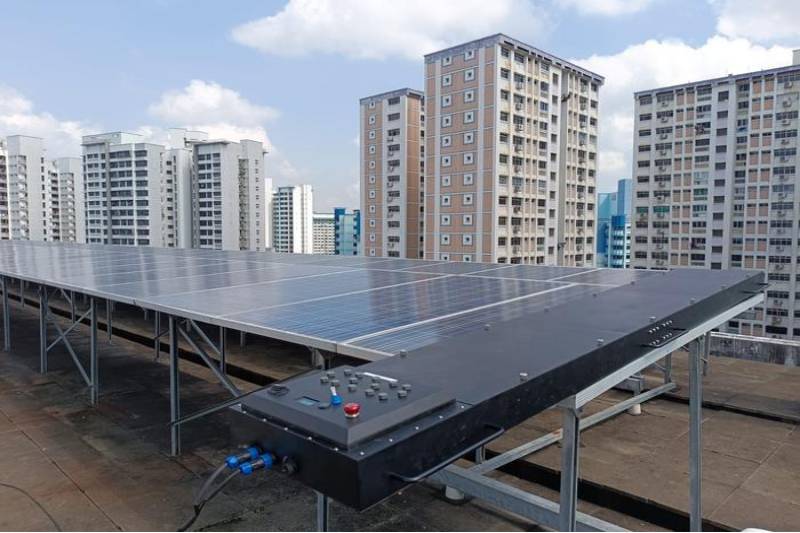
Innovative Solar Panel Rejuvenation with High Intensity Lighting by EtaVolt Startup: Advanced Regeneration Technology
- Business
- December 22, 2023
Researchers from NTU Singapore and the startup EtaVolt demonstrated a high intensity lighting system that is said to be able to “patch up” the holes in silicon solar cells caused by heat and light. It is stated that the new approach is applicable to about 90% of the solar modules on the market and can delay the deterioration of solar modules by up to five years.
A high intensity lighting gadget created by researchers at Nanyang Technological University Singapore (NTU Singapore) and company EtaVolt is said to be able to “rejuvenate” solar panels and lessen their deterioration.
The new method, known as Advanced Regeneration Technology, involves stimulating the polysilicon molecules in the solar cells with bright light and regulating their temperature to cause them to move more quickly. According to reports, this altered their arrangement and “patches up” the holes brought on by humidity, heat, and light.
“The process is akin to patching holes in a bucket; it repairs solar panels to prevent energy leakage, ensuring optimal light energy collection,” the scientists said, noting that the process is implemented via a high intensity illumination device that can roll itself over the photovoltaic modules. “The process takes less than five minutes and can help treated solar panels recover up to 5% of their lost field performance.”
Depending on the cell technology, the research team says that this technique can delay module breakdown by up to five years.
The gadget may also be applied to about 90% of the solar modules on the market and utilized on-site in ground-mounted or rooftop PV systems.
The new regeneration technique, according to EtaVolt’s report, is predicated on a unique combination of temperature, regeneration time, and illumination. It is also said to be able to mitigate and recover from light-induced deterioration (LID).
“Our solar rejuvenation method has not only been rigorously tested and validated but has shown field-proven results in various commercial applications. The technology has been successfully implemented in projects with major partners in the solar industry, such as renewable energy solutions firm Vector Green, demonstrating its effectiveness and potential for widespread adoption,” said NTU Singapore researcher Stanley Wang.
Further technical information regarding the device was not disclosed by the research team. It said, “These technologies developed at NTU have been licensed to EtaVolt and are patented through NTUitive, the University’s innovation and enterprise company.”